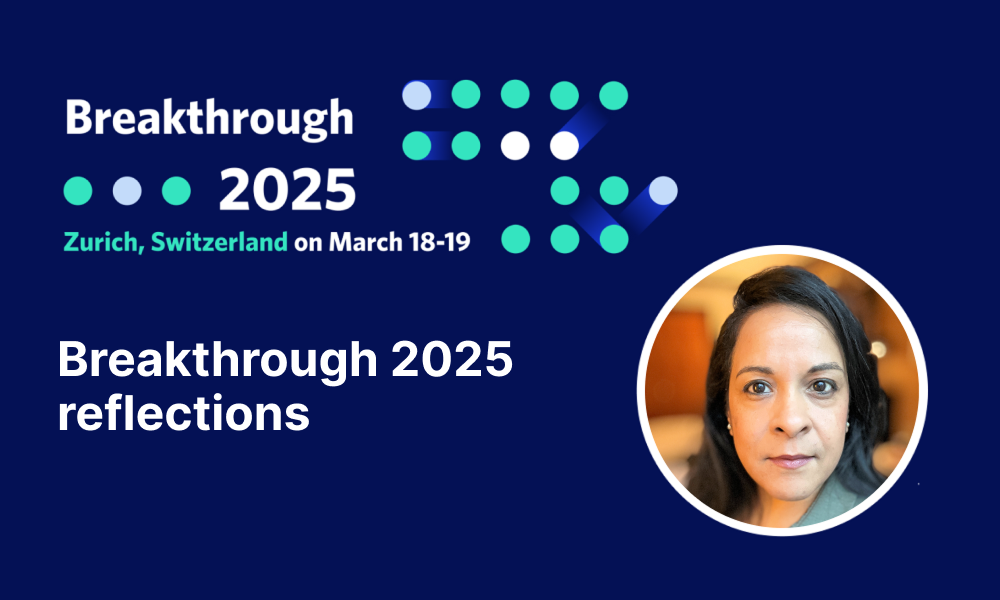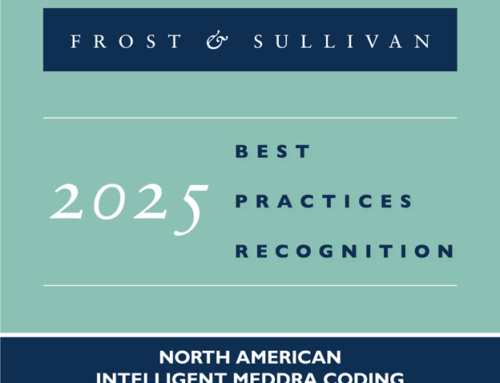At Breakthrough 2025, independent regulatory expert Preeya Beczek moderated the panel debate, Regulatory Operations: Driving Progress and Preparing for the Future. Here she shares her key takeaways from the session, with its international panel, Steve Gens of Gens & Associates; Dr. Björn Spudy of B Braun Group; Michael Sonntag of Wörwag Pharma; and Rupali Aher of Cipla.
If there’s one constant in the life sciences regulatory landscape it is perpetual motion. Toward ever improved quality and patient safety, yet accelerated delivery of critical drugs to patients, health authorities around the world are continuously revising their requirements. To individual Regulatory functions, those additional demands can feel onerous.
of critical drugs to patients, health authorities around the world are continuously revising their requirements. To individual Regulatory functions, those additional demands can feel onerous.
Meanwhile the “joins” between Regulatory and adjacent functions such as Safety, Quality, and Medical Affairs are blurring increasingly, in the interests of more fluid collaboration and data exchange.
It is in this context that our panel met, to consider the likely role of advanced automation solutions in alleviating the strain and smoothing process delivery.
Slaying silos
Wörwag Pharma’s Michael Sonntag highlighted the EU’s implementation of ISO IDMP standards in demanding a breakdown of organizational silos, to build the richer data now required around each product and its manufacture – linked to drug shortage monitoring and reporting, for instance.
Such developments require that a broader range of users can access IT systems. There needs to be a single, reliable source of truth everyone can draw on. It should be easy to look up the current legal status of product X in market Y, or quickly determine the impact of a supply interruption.
Dr. Björn Spudy of B Braun Group flagged additional drivers for increased seamless data exchange, internally within R&D operations – to fulfil other expectations such as the EU’s Falsified Medicines Directive, or reporting demands linked to the US Inflation Reduction Act, designed to lower drug costs and promote innovation.
Each new requirement reinforces the strategic importance of becoming more “data driven” – and of the potential for AI to expedite this.
Intensifying AI ambitions
On the potential of AI-powered automation, Steve Gens set out companies’ next priorities, informed by his company’s latest research.
Already these are moving beyond the context medical writing (e.g. linked to safety reports and the more efficient compilation of quality dossiers and submissions) and early interest in managing health authority interactions. Next planned use cases include regulatory impact assessment. Peak rollouts of new use cases are projected for 2026-27.
As ambitions grow, companies are becoming more strategic in their overall AI plans: 91% of the companies, in Gens & Associates’ latest research, have some form of AI strategy group now, at an enterprise or R&D level.
Becoming stressed about embracing AI for its own sake is not the answer though. Retaining business rigor will be important, but so too is having a clear digital roadmap and a framework through which to track and plan for the optimal range of opportunities for each organization.
Next frontiers
For Rupali Aher, at Cipla, day-by-day compliance management is the chief driver for internal AI interest: ideally the ability to perform a complete quality health-check on submissions and their structures – including validation of content for semantic consistency informed by the latest regulatory intelligence, as AI’s cognitive capabilities advance.
By 2030, some 30% of regulatory operational activities will be automated, according to Gens, freeing up skilled professionals to do more strategic work. That last point is crucial. Successful AI integration is not only about the technology; it is also about people. For the two to co-exist harmoniously, there needs to be strong change management, communication, and learning. That’s on top of the ongoing work needed to shore up data quality. Deeper AI integration and advanced data science should also be targets for investment, going forward.
About the panel:
- Moderator Preeya Beczek, MD of consulting firm Beczek.COM in Surrey, UK, is an independent regulatory affairs and compliance expert.
- Steve Gens is Managing Partner at Gens & Associates, based in Newtown, Pennsylvania, USA.
- Dr. Björn Spudy is Director of Global Regulatory Affairs (GRA) of B Braun Group, based in Hesse, Germany
- Michael Sonntag is Director of GRA and Pharmacovigilance at Wörwag Pharma, based in Baden-Württemberg, Germany
- Rupali Aher is a Director at global pharma manufacturer Cipla, based in Mumbai, India.










